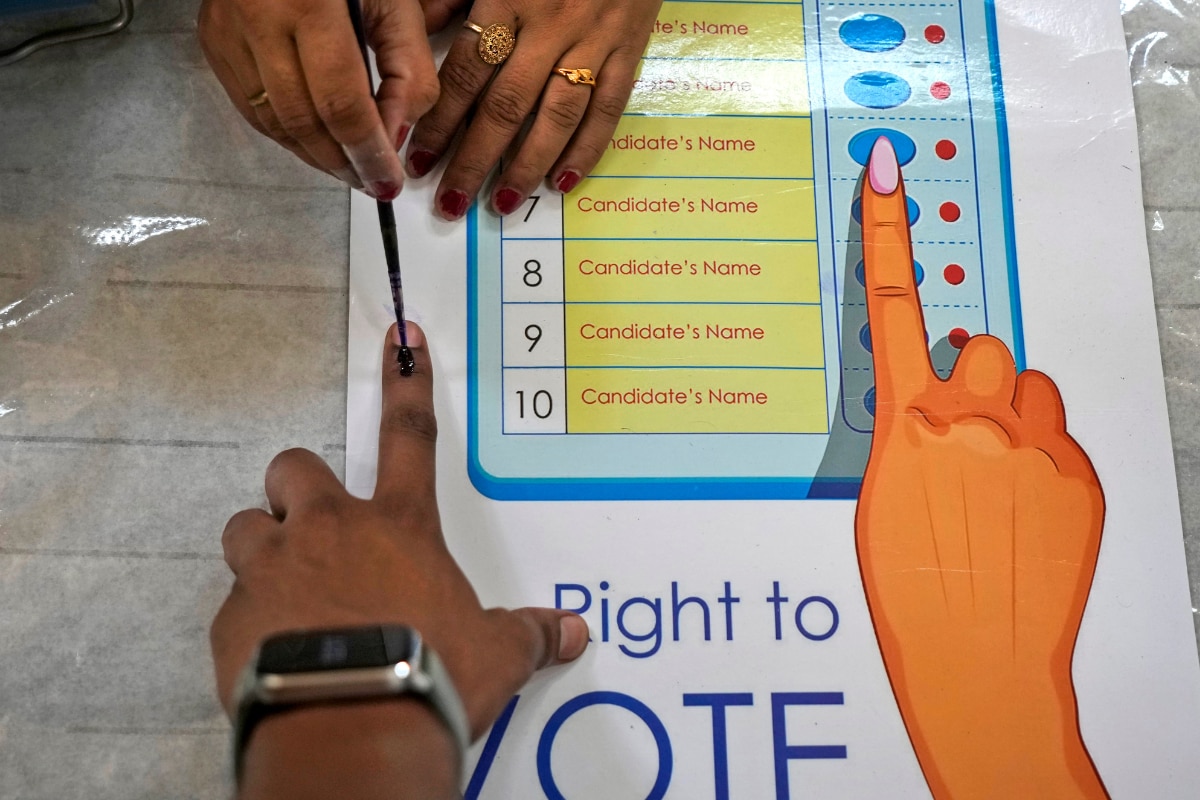The Kovind panel report has recommended 'One Nation One Poll' to be implemented in two stages: first for Lok Sabha and assembly elections, and the second for local body elections within 100 days of general elections
An implementation group will be formed to take forward the recommendations of the Kovind panel on ‘One Nation One Poll’, the report for which was accepted by the Union Cabinet on Wednesday (September 18).
Union minister Ashwini Vaishnaw said this group will execute the recommendations in the report, which said simultaneous polls will be implemented in two stages: first for the Lok Sabha and assembly elections, and the second for local body elections within 100 days of general elections.
Here is how the government plans to implement ‘One Nation One Poll’ (ONOP):
- Simultaneous elections will be implemented in two phases
- In the first phase, Lok Sabha and assembly elections will be conducted simultaneously
- In second phase, local body elections to panchayats and municipal bodies will be conducted within 100 days of the general elections
- There will be a common electoral roll for all elections. Voter ID cards will be prepared by the Election Commission of India (ECI) in consultation with state election authorities
- The Centre will initiate detailed discussions throughout the country
- An implementation group will be formed to execute the recommendations of the Kovind panel.
Vaishnaw said a large number of parties have supported ONOP, and the Centre will seek to create consensus over next few months. He said the recommendations of the Kovind panel will be discussed across India on various fora.
Here are the recommendations of the Kovind panel report:
- According to the committee, when Parliament meets, an “appointed date” should be set to notify the move. All assemblies formed by state elections after the appointed date shall only be for the period up to the subsequent general elections in 2029. This means for the transition, a date after the Lok Sabha elections will be decided. In the states with elections after that date, their tenure will be short-terminated so as to be parallel with the general elections
- In effect, state governments formed between 2024 and 2028 will have a shorter term till the 2029 Lok Sabha elections, subsequent to which there will be automatic simultaneous Lok Sabha and assembly polls
- For example, a state which holds an election in 2025 will have a government with a four-year-term while the one that conducts an election in 2027 will have a government only for two years till 2029
- The report has also recommended that in the event of a hung House, no-confidence motion or any such event, fresh elections may be held to form the new House – be it in the Lok Sabha or state assemblies.
- The term of the new government, hence formed, will also be only for the unexpired term of the preceding full term of the Lok Sabha and the expiration of this period shall operate as dissolution of the House.
Vaishnaw further said the panel found widespread support for simultaneous polls, following which the Cabinet gave a unanimous nod to the proposal. He added that more than 80 per cent respondents supported it, and opposition parties may face pressure from within to give support.
Here is what lies ahead:
- The panel recommended as many as 18 constitutional amendments, most of which will not need ratification by state assemblies. But, these will require certain Constitution amendment bills that will need to be passed by Parliament
- For the two separate phases of ONOP, there will be two constitutional amendment Acts. Under them, a total of 15 amendments will be made including the insertion of new provisions and amending others
- First constitutional amendment Bill: According to the panel, the first Bill will insert a new article — 82A — into the Constitution. Article 82A will establish the process by which the country will transition to simultaneous elections
- Second constitutional amendment Bill: The second Bill will introduce Article 324A in the Constitution. It will empower the central government to make laws to ensure parallel elections of municipalities and panchayats with Lok Sabha and assembly elections
- Ratification by states: After the introduction of the two amendment Bills, Parliament will follow the amendment procedures under Article 368. Since only Parliament is empowered to legislate the election laws regarding Lok Sabha and assembly, the first amendment Bill will not need ratification from the states. But, matters related to polling in local bodies are under the state subject, and will require the second amendment Bill to be ratified by at least half the states
- President’s assent and implementation: After the ratification of the second Bill, and after it is passed in both the Houses with prescribed majorities, the Bills will go to the President for assent. Once she signs the Bills, they will become Acts. Following this, the implementation group will execute these changes based on the provisions in these Acts
- Some proposed changes regarding the single electoral roll and voter ID card will need ratification by at least half of the states. A new sub-clause to Article 325 of the Constitution will suggest that there should be a single electoral roll for all polling in a constituency
- Separately, the Law Commission is also likely to come up soon with its own report on simultaneous polls, of which Prime Minister Narendra Modi has been a strong votary
- Sources said the Law Commission is likely to recommend holding simultaneous polls for all three tiers of the government — the Lok Sabha, state assemblies and local bodies like municipalities and panchayats — starting with 2029 and a provision for unity government in cases like hung house.
The report of the high-level committee was placed before the Cabinet on Wednesday. The panel headed by former president Ram Nath Kovind had submitted the report in March ahead of the announcement of the Lok Sabha elections. Placing the report before the Cabinet was a part of the law ministry’s 100-day agenda.
At present, the ECI is responsible for the Lok Sabha and assembly polls, while the local body polls for municipalities and panchayats are managed by state election commissions.
(With PTI inputs)

